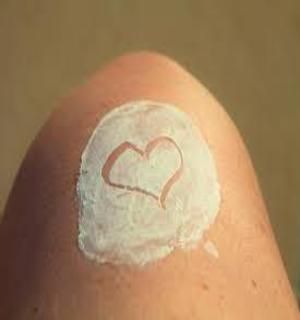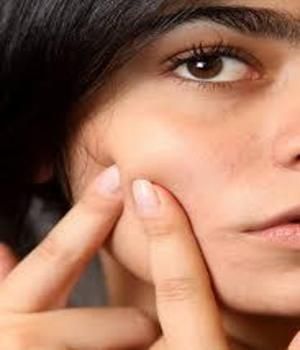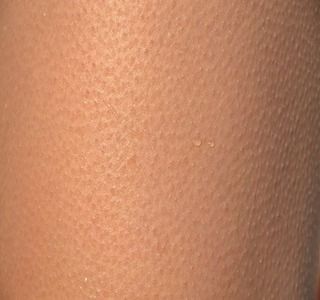Not all are obsessed with their skin but we can’t deny that a big number of people really invest on expensive skin treatments and luxurious skin care products to help them achieve a fresh and youthful looking appearance despite their age. You can’t blame them, though, since many people will immediately pass judgments on you based on your appearance. If you truly want to make a lasting positive impression on someone, you should always look your best. It does not necessarily mean you have to be good-looking but at least be presentable enough that people would really want to be with you too. It all starts with your skin, which covers the entire length of your body.
 As we age, it is normal for our skin to look aged and lose its elasticity because our body naturally degenerates. That’s a fact of life. However, there are ways you can do to delay the signs of aging, allowing you to age rather gracefully. If you can’t afford pricey skin treatments and products, you can help your skin stays young-looking for as long as possible just by yourself by simply avoiding common skincare mistakes we are all guilty of doing from time to time. Staying hydrated is something we can all do that can go a long way when it comes to our appearance and health. If you don’t want to sport dry skin, drink plenty of water and you’ll soon notice you not only look healthier but fresher too. The same also applies to moisturizing skin products such as lotions and creams that will keep your skin hydrated despite the high heat outside.
As we age, it is normal for our skin to look aged and lose its elasticity because our body naturally degenerates. That’s a fact of life. However, there are ways you can do to delay the signs of aging, allowing you to age rather gracefully. If you can’t afford pricey skin treatments and products, you can help your skin stays young-looking for as long as possible just by yourself by simply avoiding common skincare mistakes we are all guilty of doing from time to time. Staying hydrated is something we can all do that can go a long way when it comes to our appearance and health. If you don’t want to sport dry skin, drink plenty of water and you’ll soon notice you not only look healthier but fresher too. The same also applies to moisturizing skin products such as lotions and creams that will keep your skin hydrated despite the high heat outside.
Luckily, you don’t need years of on-the-job training to stop some of the most common skin issues dead in their tracks. We checked in with the folks who spend their days studying pores to find out how some of the most common skin care issues originate, and how to prevent them in the first place.
- YOU’RE DEHYDRATED
Sure, drinking more water will certainly help dehydrated skin, but it’s not enough on its own. That’s because parched skin can be the result of a range of habits.
“Dehydration in the form of dull, lackluster skin is immediately apparent and can be caused by poor diet, (lack of) sleep, excess alcohol and sun damage,”
(Via: https://www.today.com/style/how-fix-skin-care-issues-dry-skin-inflammation-t121111)
Your diet also plays a major role in the condition of your skin. You may be prone to acne because you love eating sweet treats or foods high in carbohydrates. Dietary products are likewise culprits to those frequents bouts of acne you may have. Unlike skin growths that often appear out of nowhere, you mostly always have an inkling why there are suddenly zits appearing on your face. To avoid this, just make sure you eat a healthy, balanced diet that has everything your body will ever need without causing unnecessary breakouts that can leave you anxious and depressed.
Exfoliating excessively
Exfoliation is great for getting rid of dead skin cells, but then doing it excessively prevents skin from retaining water. This makes the skin look dry and develops wrinkles.
Smoking
The habit of smoking has the most disadvantages. Along with putting our hearts and lungs at risk, it also leads to skin ageing. The heat from the cigarette burns our skin, changes the elastic fibers of the skin and reduces the moisture from our skin.
Avoiding sunscreen
The major reason for ageing of skin are the sun rays. Most of ageing happens due to sun rays that penetrate the skin and alter its elastic structures. Therefore, you should never avoid sunscreens before going out in the sun.
(Via: https://www.skymetweather.com/content/health/mistakes-leading-to-your-skin-age-faster/)
Most vices also lead to faster skin aging. More often than not, it is not the things you don’t do for your skin but rather the things you do that leaves permanent damage to the temple that is your body. Vices like cigarette smoking and alcohol drinking contain chemicals that aren’t exactly good for your health, so you can expect for it to take its toll on your body. And one more thing you often neglect to do is to wear sunscreen. Whether the sun is up or not, you should never exclude sunscreen in your daily routine, and most especially put it during hot weather or when you are expected to stay longer hours outside. These things are quite common but we still fail to do what’s right for your skin. You’ll be surprised at how simply sleeping eight hours each night can leave you with healthy glowing skin that is naturally you.









